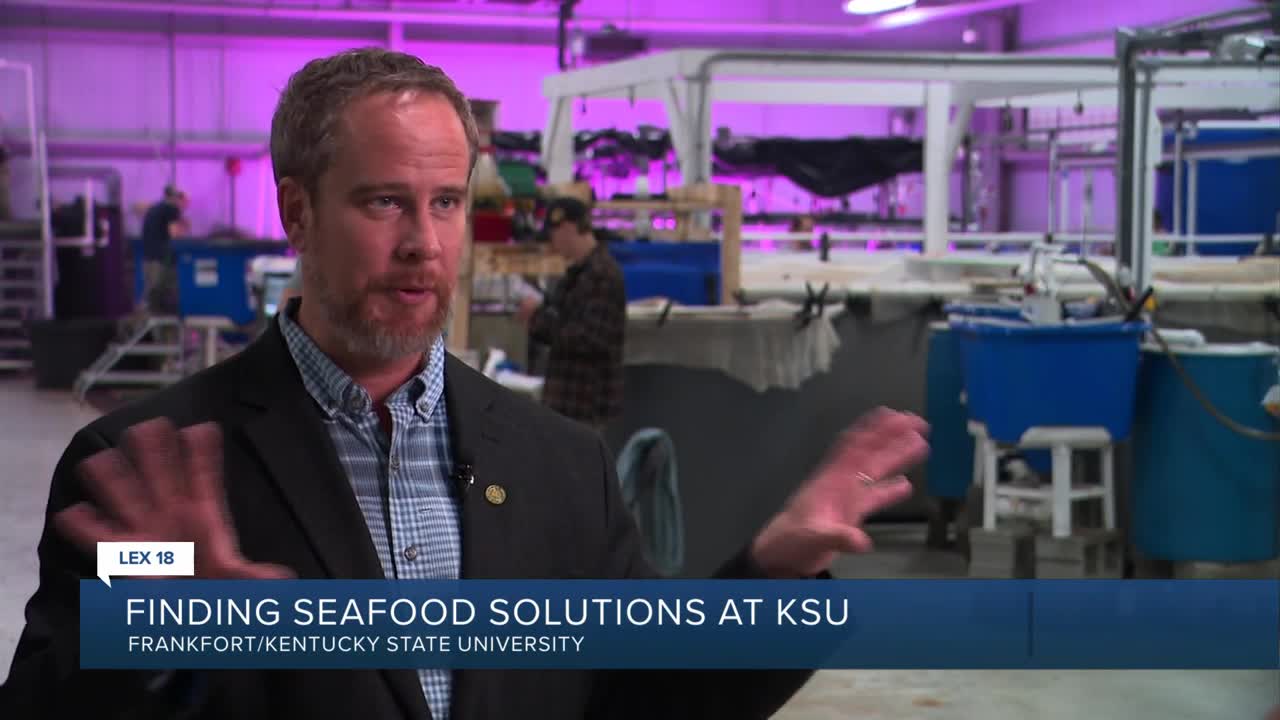FRANKFORT, Ky. (LEX 18) — At Kentucky State University's 14,000-square-foot Aquaculture Research Center, pioneering research is underway to grow seafood safely and sustainably.
The Division of Aquaculture at KSU began in the 1980s, primarily focused on researching the catfish industry. Today, the program has grown to include an array of courses, undergraduate and master's degrees, cutting-edge shrimp farming technology, and an international influence on aquaculture research.
"Aquaculture is the fastest growing form of agriculture in the world," said Dr. Andrew Ray, chair of the School of Aquaculture and Aquatic Science. "But one of the big problems is that we import almost 80% of our seafood in the United States, so that growth, fastest in the world, is happening in other countries and we're importing their products, most of which are farm-raised."
As consumer demand for seafood grows, according to the USDA, so does the race to grow it domestically.
Ray said Kentucky is positioned perfectly for that challenge with distribution hubs like Louisville and Cincinnati nearby and investments in research at land grant universities like KSU.
"Being in this position, we have a unique opportunity to provide fresh seafood to people who otherwise can't get it," Ray said. "If you go to the grocery, you'll find a lot of frozen products, and if you start looking at those labels you'll see products from other countries. It doesn't have to be that way, and we're right here in the central part of the country ready to change that."
Researching how to grow seafood safely and sustainably starts with students like George Gramza. The graduate student came to KSU for its reputation in aquaculture.
"I just love the idea of aquaculture," Gramza said. "I get to work hands-on with animals all the time, and it’s a great idea because we have a growing population and it’s hard to keep up with the protein demand, but aquaculture is a way to do that sustainably."
Scooping shrimp out of a tank, Gramza explained the process of weighing, gathering samples, studying food conversion ratio among other research.
"You don’t normally think about growing salt-water shrimp and flounder in Frankfort, in the middle of landlocked Kentucky, but it’s a great program. I think becoming a professor and doing research into sustainable aquaculture would be really cool — being able to figure out how to make it more efficient, cost-effective, be able to feed people, save the environment, all that fun stuff."
With a foundation laid, KSU officials recently testified in front of the Interim Joint Committee on Education, making their pitch for an aquaculture PhD program.
"We've spent years training them in our master's degree program, and then just to see them go away and see that talent go potentially to other states or countries, we'd love to keep those talented people here at home," Ray said.
Anchored in research, KSU hopes to continue making waves in aquaculture, growing seafood and solutions for the country.





